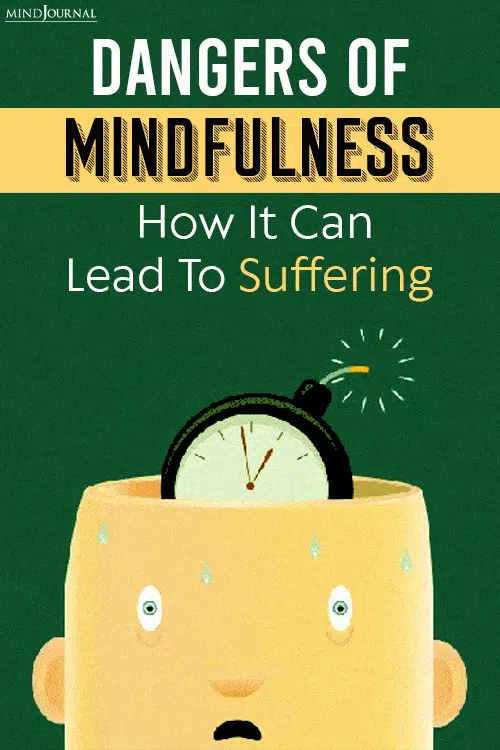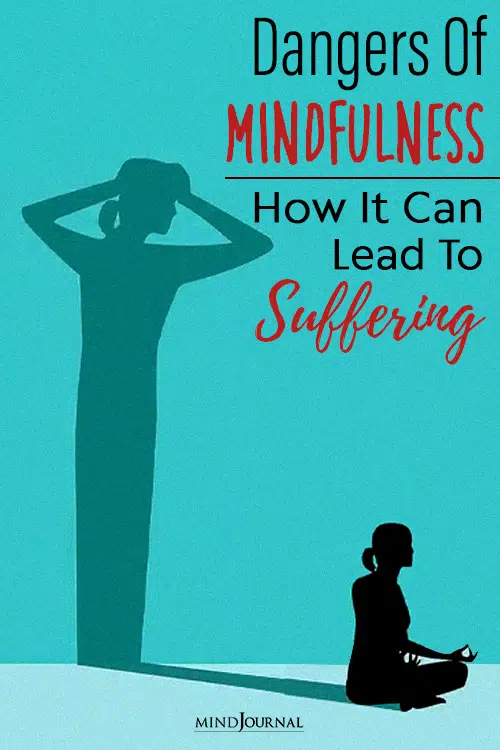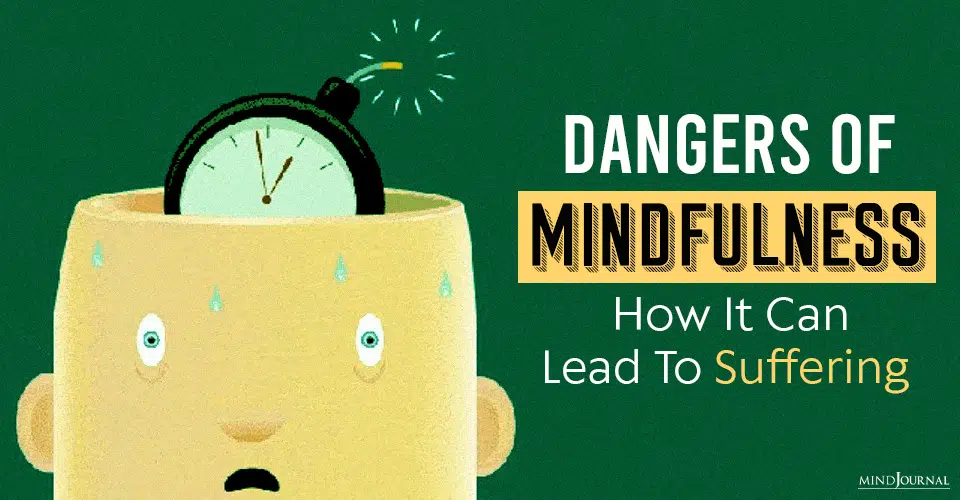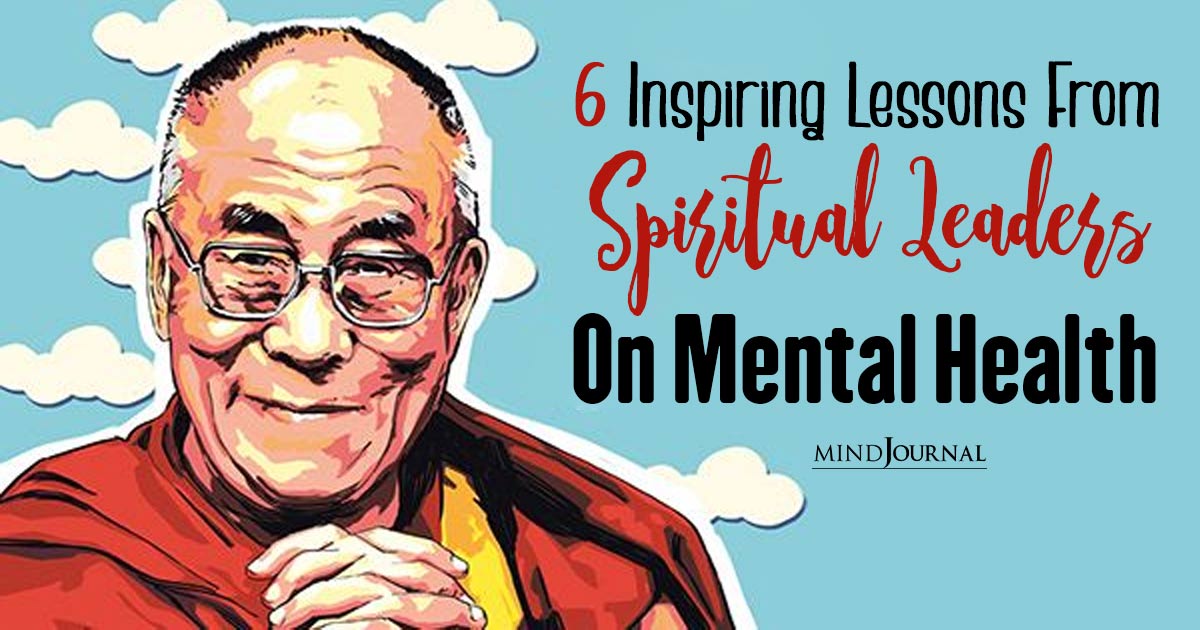Mindfulness is a life-changing belief and practice to have, however, too much of it can lead to more pain, hardships, and suffering. Too much of anything never is a good thing, you know.
Written By Jason N. Linder
Key Points: Mindfulness has become over-hyped, misunderstood, and overly commodified. The documented robust health effects are overstated and not enough health professionals are talking about the unknowns or downsides. There are other ways to self-soothe besides mindfulness; it's one of many tools in the toolbox.
Let me start by making this very clear: I’m a big fan of mindfulness. I’ve practiced for over 10 years and read many books and articles about it. I also have a mindfulness blog on Psychology Today and strongly believe it’s the next major health revolution. I also use it routinely in my teaching, therapy with clients, and in other professional realms. Still, it’s timely and vital to recognize that mindfulness has become over-hyped.
Since the year 2000 especially, mindfulness has flooded the public news media and scientific literature (see the graph below). It has boldly emerged from the fringes and become referred to often as a substitute for psychotherapy, a resilience driver, a vehicle of corporate well-being, and a widely implemented educational practice (Van Dam et al., 2018).
Much of the popular media fail to accurately represent the scientific examination of mindfulness and have made overblown assertions about its potential and use cases. There have even been some depictions of mindfulness as a panacea for suffering, despite the fact that mindfulness was not originally developed to treat illness or disease.
Related: Toxic Positivity: Why It Is Not Always A Good Thing
As mindfulness has increasingly penetrated almost every realm of contemporary society, so have misconceptions about what it is (mindfulness scientific literature to this day still doesn’t contain a clear and consistent definition of it; see Van Dam et al., 2018), whom it helps, and how it affects the mind, body, and brain. Misinformation and research with unsound methodology can harm, mislead, or at least disappoint the public (Van Dam et al., 2018).
According to directors of the National Center for Complementary and Integrative Health (NCCIH) at the NIH, the biggest potential harm of mental health treatments (e.g., mindfulness meditation) is unsubstantiated claims of its benefit without understanding possible adverse effects. It’s been largely overlooked that mindfulness or meditation-related experiences that were serious or distressing enough to warrant additional treatment or medical attention have been reported in more than 20 published case reports or observational studies (Davidson & Kaszniak, 2015).
Also, to date, “official” clinical guidelines about the state of meditation-related risks are in their infancy and only a handful of organizations and regulatory agencies have issued any statements. The American Psychological Association (APA) included descriptions of meditation-induced depersonalization and other clinically relevant problems or contraindications in both the 4th and 5th editions of their Diagnostic and Statistical Manual of Mental Disorders (APA, 2000, 2013).
The NIH states that “meditation could cause or worsen certain psychiatric problems” but does not provide any practice guidelines beyond a boilerplate disclaimer to “check with your doctor” before trying meditation (NCCIH, 2016). So, this means the media and health professionals are strongly endorsing it without it being properly vetted.
The Mindfulness-Based Cognitive Therapy (MBCT) Implementation Resources (Kuyken, Crane, & Williams, 2012) is one of the first documents to list the potential risks of mindfulness on participants including increased likelihood of suicidality. Depression, negative emotions, and flashbacks during meditation for individuals with trauma histories.
At present, management strategies for potential risks have been largely limited to exclusion and informed consent. Both the University of Massachusetts Center for Mindfulness and the Oxford Mindfulness Centre have published recommended exclusion criteria for standard Mindfulness-Based Stress Reduction (MBSR) and MBCT, both excluding current suicidality and/or any current psychiatric disorder.
Clearly, potential risks have been under-emphasized and still understudied, while its potential for healing and transforming suffering has been woefully overblown. Clearly, these are major under-examined dangers that can put the public at risk.
Related: How To Develop Emotional Stability: 5 Empowering Steps
When Is Mindfulness Right For You—And How Can You Know?
Despite the risks mentioned above, there are still many documented benefits of mindfulness. But, as the adage goes: if you only have a hammer, everything can look like a nail. The reality is that we need many tools in the “mental health toolbox” for a variety of stressful situations life will throw our way: what about the saw, screwdriver, or pliers?
A contributing factor is that we live in a consumerist, capitalist country. It has been overly commodified, its origins partially distorted. Not enough people, especially health professionals are researchers, are talking about the risks, contraindications, or downsides of practice, or who specifically it’s best suited for and when.
So, it’s not always the right moment to practice mindfulness. Every experienced mindfulness practitioner has had the experience of feeling worse after having practiced. Mindfulness tends to evoke or reinforce what is already going on in your mind and body. If you’re worried about something that will happen in the future, or can’t stop thinking about an event from the past, mindfulness may amplify your worrying, confusion, or suffering around this.
When this is the case, there are other ways to self-soothe besides mindfulness; it’s one of many tools in the shed. The saying “everything in moderation” couldn’t be more applicable; too much of a good thing can always harm. We all can imagine the downsides of drinking too much water or recommending someone only consume veggies when they’re struggling with nutrition.
Want to know more about the dangers of mindfulness? Check this video out below!
Conclusion
The odds are high that people have told you to learn mindfulness through an app or meditate more when you’re feeling down, stressed, nervous, or anxious. It’s also ostensibly becoming part of many psychotherapies. That said, mindfulness meditation is one of many tools, practices, and strategies to promote wellness, awareness, and calm. It’s vital to have a few others in your toolbox and learn when and when not to learn or practice the others.
Related: The Hidden Dangers Of Toxic Positivity
It’s important we understand the risks and don’t overstate the potential benefits until they’re robustly substantiated. Practicing mindfulness when you’re not mentally ready, or when you actually need a nap, to eat, a massage, to work, or an important conversation with a loved one can clearly create more difficulties than it’s meant to mitigate.
References:
American Psychiatric Association. (2013). Diagnostic and statistical manual of mental disorders (5th ed.) Washington, DC. Kuyken, W., Crane, W., & Williams, J. M. (2012). Mindfulness-based cognitive therapy (MBCT) implementation resources. Oxford, England: Oxford University. National Institutes of Health. (2016). Adverse event and serious adverse event guidelines OHRP guidance on reviewing and reporting unanticipated problems involving risks to subjects or others and adverse events, OHRP guidance. Bethesda, MD: National Institutes of Health, Office for Human Research Protections, U.S. Department of health and Human Services. Davidson, R. J., & Kaszniak, A. W. (2015). Conceptual and methodological issues in research on mindfulness and meditation. American Psychologist, 70, 581–592. doi:10.1037/a0039512
Written By Jason N. Linder Originally Appeared On PsychologyToday










Leave a Reply
You must be logged in to post a comment.